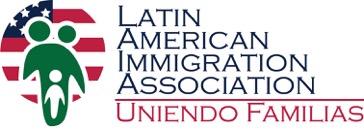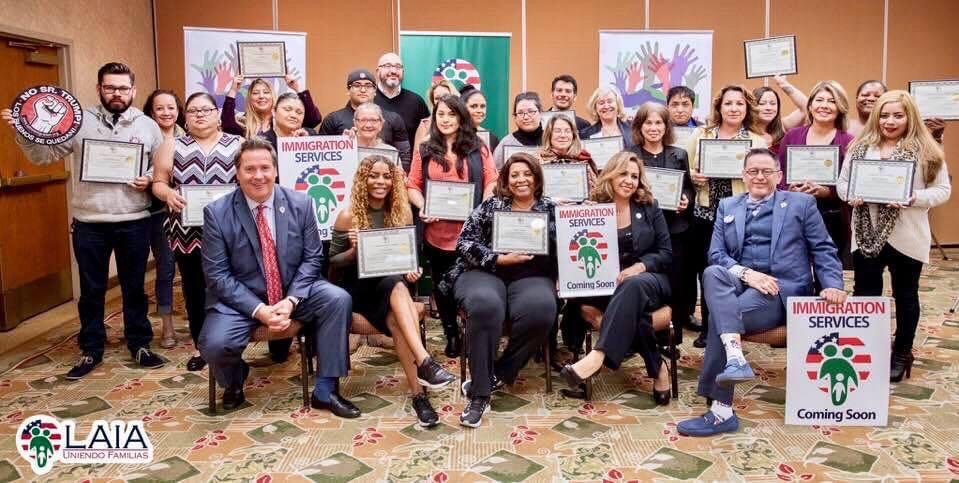Understanding USCIS Immigration Forms - A Guide for Consultants
Listen to This Article
As an immigration consultant, one of your key responsibilities is to help clients navigate the confusing and sometimes complex world of United States Citizenship and Immigration Services (USCIS) forms. These forms, each with its unique purpose and requirements, are the foundation of any immigration process. This guide aims to provide a comprehensive overview of these forms, helping you serve your clients more effectively.
The Importance of Understanding USCIS Immigration Forms
Understanding USCIS immigration forms is crucial for several reasons. First, each form corresponds to a specific immigration process, and using the wrong form can lead to delays or even denials. Second, each form has its own set of instructions and requirements, and missing or incorrect information can have serious consequences. As an immigration consultant, your ability to understand and accurately complete these forms can significantly impact your clients’ immigration journey.
Overview of USCIS Immigration Forms
USCIS has a variety of forms, each serving a specific purpose in the immigration process. Some of the most commonly used forms include:
I-485 (Application to Register Permanent Residence or Adjust Status): Also known as the green card application, this form is for immigrants seeking to become permanent U.S. residents.
N-400 (Application for Naturalization): This form, commonly referred to as the citizenship application, is submitted when an immigrant applies to become a U.S. citizen.
N-600 (Application for Certificate of Citizenship): This form is used to obtain an official certificate recognizing a child’s status as a U.S. citizen. It is not an application to become a U.S. citizen.
I-130 (Petition for Alien Relative): This form is used when a U.S. citizen or permanent resident wants to help a relative immigrate to the United States.
I-864 (Affidavit of Support): Some immigrants are required to submit this form to demonstrate that they have sufficient financial means and are not likely to rely on the U.S. government for financial support.
Form Use Cases
The Four Types of Immigration
Immigration to the United States can be broadly categorized into four types: family-based immigration, employment-based immigration, refugee and asylee status, and the diversity visa program. Each of these types of immigration requires different forms and processes. For example, family-based immigration often involves the I-130 form, while employment-based immigration may require forms such as the I-140 (Immigrant Petition for Alien Worker).
The Five Stages of Immigration
The immigration process can be broken down into five stages: petition, application, biometrics, interview, and decision. Each stage requires different forms and documentation. For instance, the petition stage often involves forms like the I-130 or I-140, while the application stage may require forms such as the I-485 or N-400.
The Three Main Categories of Immigrants
Immigrants to the United States can be categorized into three main groups: family-sponsored immigrants, employment-based immigrants, and refugees and asylees. Each category has different requirements and forms. For example, family-sponsored immigrants often use the I-130 form, while employment-based immigrants may use forms such as the I-140 or I-485.
Conclusion
Understanding USCIS immigration forms is a crucial part of being an effective immigration consultant. By familiarizing yourself with these forms and the processes they correspond to, you can provide better guidance to your clients and help them navigate their immigration journey more smoothly. For more resources and support, consider joining the Latin American Immigration Association. Our membership provides access to a wealth of resources designed to support your work in immigration services.
Frequently Asked Questions
What is the I-485 form?
The I-485 form, also known as the Application to Register Permanent Residence or Adjust Status, is used by immigrants seeking to become permanent U.S. residents.
What is the N-400 form?
The N-400 form, also known as the Application for Naturalization, is submitted when an immigrant applies to become a U.S. citizen.
What is the N-600 form?
The N-600 form, also known as the Application for Certificate of Citizenship, is used to obtain an official certificate recognizing a child’s status as a U.S. citizen.
What is the I-130 form?
The I-130 form, also known as the Petition for Alien Relative, is used when a U.S. citizen or permanent resident wants to help a relative immigrate to the United States.
What is the I-864 form?
The I-864 form, also known as the Affidavit of Support, is used by some immigrants to demonstrate that they have sufficient financial means and are not likely to rely on the U.S. government for financial support.
Success Stories: Fernando’s Journey
To illustrate the importance of understanding USCIS immigration forms, let’s look at the story of Fernando. Fernando immigrated to the U.S. from Mexico with the help of an immigration consultant who was a member of the Latin American Immigration Association<. The consultant’s deep understanding of USCIS forms and processes helped Fernando navigate the sometimes confusing U.S. immigration system. From filing the I-130 form to petition for his immigration through a U.S.-based relative, to completing the I-485 form to adjust his status to a permanent resident, the consultant was there to support Fernando every step of the way. Today, Fernando is a proud U.S. resident, working towards his dream of becoming a U.S. citizen.
Understanding USCIS immigration forms is not just about paperwork—it’s about helping people like Fernando realize their American dream. As an immigration consultant, you have the power to make a significant difference in people’s lives. The Latin American Immigration Association is here to support you in this important work.
Why Join the LAIA? Exploring the Benefits of Our Membership Program
Listen to This Article
The Latin American Immigration Association (LAIA) is the leading professional organization that empowers individuals and organizations involved in immigration services industry. Our students, members and supporters come from all segments of the immigration services industry, including immigration consultants, attorneys, paralegals and BIA accredited representatives. We are dedicated to providing a series of comprehensive immigration training programs as well as offering a valuable Membership Benefits Program which is designed to provide ongoing support, coaching, mentoring and valuable turnkey tools and resources to our community.
But why should you consider joining? Let’s delve into the benefits of our membership benefits program.
The Importance of Professional Support & Coaching in Immigration Services
Navigating the world of immigration services can be confusing and detailed. With ever-changing laws and procedures, it’s crucial to have access to up-to-date information and professional support and coaching services. That’s where the LAIA membership program comes in. Our program is designed to provide you with the resources and support you need to confidently and effectively serve your clients.
Whether you’re an , attorney, paralegal, BIA accredited representative or part of a non-profit organization or church group, our membership program can enhance your professional capabilities.
Detailed Overview of Membership Benefits
As a member of the LAIA, you gain access to a wealth of resources designed to support your work in immigration services. Here’s a closer look at what you can expect:
Sample contracts, intake questionnaires, checklists and sample filing packages – We provide sample contracts and intake forms easily downloadable in both English and Spanish, along with checklists and sample application filing packages for the most common family-based application filings. These valuable turnkey resources can save you time and money, and help to provide following best practice procedures.
Private Facebook Community – Connect with other professionals in the field, share experiences, ask questions, and get advice in our private Facebook community.
Ongoing training webinars – Stay up-to-date with the latest developments in immigration services through our information and continuing education training webinars that are offered at discounted rates for current members.
Sample Filings – We provide sample filings for various immigration procedures, including Family Petition, Affidavit of Support, Fiance Visa Petition, DACA Renewal, Naturalization, Certificate of Citizenship, and more.
Declaration Samples – Get access to I-601A, VAWA, and U-Visa declaration samples to help you with learning some of the more advanced family-based forms.
Success Stories
One of our students and members, Liz E. from Philadelphia, PA an independent immigration consultant, shares her experience: “If you are looking to obtain great results in your career and work with people that have the most up to date information and best skills, look no further! Latin American Immigration Association is the best. They are not looking for numbers or to get something out of you, they are here for you and they make sure you are set in every possible way. Thank you Greg and all staff involved, you guys are the best!” Liz’s Google Review: ⭐️ ⭐️ ⭐️ ⭐️⭐️
How To Get Started
The LAIA membership program offers a wealth of resources and support to help you navigate the complexities of immigration services. Whether you’re just starting out or looking to enhance your professional capabilities, consider joining the LAIA.
Click here to join us today and start enjoying the benefits of membership.
Frequently Asked Questions
Who can join the LAIA?
Anyone involved in the immigration services industry including Immigration Consultants, Attorneys, Paralegals, BIA Accredited Representatives, Non-Profit Organizations, Church Groups, and Corporate Vendors, can join the LAIA.
What resources do I get access to as a member?
As a member, you get access to support, coaching, mentoring, sample contracts, intake questionnaires, checklists for common filings, referrals to immigration attorneys, membership in a private Facebook community, invitations to additional training classes and webinars, sample filings for various immigration applications, documentation related to the I-601A, VAWA, and U-Visa processes and much more.
How can I join the LAIA?
You can join the LAIA by visiting our website and registering on our Membership Benefits Program page.
Are there membership dues to join the LAIA?
Yes, there are membership dues which helps us provide the resources and support that our members benefit from. The dues and different levels of membership offered can be found on our website.
Can I get legal advice from the LAIA?
LAIA is not a law firm and we do not provide legal advice. LAIA provides training, resources, networking and non-legal support and information for immigration services. We recommend consulting with a licensed attorney for legal advice.
Joining the LAIA can provide you with the resources, support, and community you need to succeed in the field of immigration services. We hope to welcome you as a member soon!!!
Understanding Surety Bonds for Immigration Consultants: A Complete Guide
Listen to This Article
 As an immigration consultant or a document preparation service provider, you’re in a unique position to make a significant impact on the lives of many. However, navigating the complexities of the field, particularly understanding the intricacies of surety bonds, can pose a significant challenge. This comprehensive guide is designed to demystify surety bonds for immigration consultants, highlighting their importance and providing a roadmap to compliance. We’ll also explore how the Latin American Immigration Association can be an invaluable partner in securing the best rates for your immigration bond.
As an immigration consultant or a document preparation service provider, you’re in a unique position to make a significant impact on the lives of many. However, navigating the complexities of the field, particularly understanding the intricacies of surety bonds, can pose a significant challenge. This comprehensive guide is designed to demystify surety bonds for immigration consultants, highlighting their importance and providing a roadmap to compliance. We’ll also explore how the Latin American Immigration Association can be an invaluable partner in securing the best rates for your immigration bond.
The Importance of Surety Bonds
In the immigration consulting industry, surety bonds act as a financial guarantee that the immigration consultant will fulfill their obligations according to state laws. The bond serves as a form of protection for the public, ensuring that the consultant operates in good faith and in compliance with the law.
Navigating Bond Requirements in Key States
Several states have specific surety bond requirements for immigration consultants or document preparation service providers. Here’s a brief overview of the states with notable bond requirements:
- California: California mandates the possession of an Immigration Consultant Surety Bond for operation.
- Georgia: An Immigration Assistance Provider Bond is required for service providers in Georgia.
- Nevada: In Nevada, an Immigration Forms Specialist Bond or a Document Preparation Service Provider Bond is a must-have.
- New York: Service providers in New York need an Immigration Assistance Provider Bond to operate.
- Utah: Utah law requires an Immigration Consultant Bond for those offering immigration consulting services.
Partner with LAIA for Your Immigration Bond Needs
The Latin American Immigration Association (LAIA) has partnered with several leading bond companies to provide the best possible rates on your needed immigration bond. As the Agent for Surety Bonds, LAIA Insurance Services is dedicated to supporting immigration consultants and document preparation service providers in fulfilling their bond requirements.
Get a Complimentary Quote for Your Bond
LAIA offers a user-friendly online application process for those seeking a complimentary quote for their bond. Once the application is submitted, you can expect to receive your quote within approximately 24 hours, streamlining your path to compliance and successful operation.
FAQs
What is a surety bond in the context of immigration consulting?
A surety bond in the context of immigration consulting is a legally binding contract that guarantees that the immigration consultant will fulfill their obligations according to state laws. If the consultant fails to abide by these laws, the bond provides financial protection to the client.
Why is a surety bond important for a Document Preparation Service Provider?
A surety bond is crucial for a document preparation service provider as it helps establish credibility and trust. It ensures that the service provider will adhere to state laws and regulations, providing clients with financial protection in the event of non-compliance or misconduct.
How can I obtain a surety bond in my state?
To obtain a surety bond in your state, you can contact a bond company or an insurance agency that offers surety bonds. The Latin American Immigration Association (LAIA) has partnerships with leading bond companies and can assist in obtaining a bond at the best possible rate.
How can the Latin American Immigration Association assist me with my bond requirements?
The LAIA, through its insurance services, works in partnership with several leading bond companies. They provide assistance in navigating the bond process, offering competitive rates for the required immigration bonds. Additionally, they offer a straightforward online application process for obtaining a complimentary quote for the necessary bond.
What is the process to receive a complimentary quote for a bond from LAIA?
To receive a complimentary quote for a bond from LAIA, you can complete their online application or call their designated number. After your submission, you can expect to receive your quote within approximately 24 hours.
Conclusion
Navigating the bond requirements is a crucial step toward operating as a document preparation service provider. By understanding the specific requirements of your state and partnering with trusted organizations like the Latin American Immigration Association, you can ensure a smooth, compliant operation. Embark on your journey in the immigration consulting industry with the confidence that comes from being well-prepared and well-supported.
The Most Common USCIS Immigration Forms You Need to Know
Listen to This Article
Common USCIS Immigration Forms
(click each form to visit its respective page on the USCIS website)
When applying for U.S. citizenship or permanent residence, it can be challenging to navigate the various USCIS immigration forms required by the U.S. Citizenship and Immigration Services (USCIS). To make it easier, we’ve compiled a list of the most commonly used immigration forms along with their official names:
Also known as the green card application, this form is for immigrants seeking to become permanent U.S. residents.
This form, commonly referred to as the citizenship application, is submitted when an immigrant applies to become a U.S. citizen.
This form is used to obtain an official certificate recognizing a child’s status as a U.S. citizen. It is not an application to become a U.S. citizen.
This form is used when a U.S. citizen or permanent resident wants to help a relative immigrate to the United States.
Some immigrants are required to submit this form to demonstrate that they have sufficient financial means and are not likely to rely on the U.S. government for financial support.
By understanding and completing these commonly used USCIS immigration forms, you can take the first step toward achieving your immigration goals in the United States.
Other USCIS Immigration Forms
- AR-11 Change of Address
- G-325A Biographic Information
- G-639 Freedom of Information Act/Privacy Act Request
- I-90 Application to Replace Permanent Resident Card
- I-129 Petition for a Nonimmigrant Worker
- I-290B Notice of Appeal or Motion
- I-360 Petition for Amerasian, Widow(er), or Special Immigrant
- I-485A Supplement A to Form I-485
- I-589 Application for Asylum and Withholding of Removal
- I-601 Application for Waiver of Grounds of Inadmissibility
- I-751 Petition to Remove the Conditions of Residence
- I-765 Application for Employment Authorization
- I-817 Application for Family Unity Benefits
- I-821 Application for Temporary Protected Status
- I-821D Consideration of Deferred Action for Childhood Arrivals
- I-864A Contract Between Sponsor and Household Member
- I-881 Application for Suspension of Deportation or Special Rule Cancellation of Removal (Pursuant to Section 203 of Public Law 105-100 (NACARA))
- I-912 Request for Fee Waiver
- I-918 Petition for U Non-immigrant Status
- N-336 Request for a Hearing on a Decision in Naturalization Proceedings (Under Section 336 of the INA)
- N-426 Request for Certification of Military or Naval Service
- N-470 Application to Preserve Residence for Naturalization Purposes
- N-565 Application for Replacement Naturalization/Citizenship Document
- N-600 Application for Certificate of Citizenship
- N-648 Medical Certification for Disability Exceptions
Applying for U.S. citizenship or permanent residence can be a daunting task, especially when navigating the various immigration forms required by USCIS. However, by familiarizing yourself with the most commonly used immigration forms, you can simplify the process and increase your chances of a successful outcome.
Conclusion
Remember to always use the official form names and double-check the form number to avoid any errors in your application. With the right resources and guidance, you can achieve your immigration goals and make a new life for yourself in the United States.
Empower Your Career with Immigration Consultant Training from The Latin American Immigration Association
Listen to This Article
 The Latin American Immigration Association is a renowned organization that has carved a niche for itself in the field of immigration consulting services. Committed to delivering excellence and innovation, they are on a mission to provide comprehensive support and guidance to those who need assistance with various immigration matters. One of their most notable offerings is the Immigration Consultant Training program.
The Latin American Immigration Association is a renowned organization that has carved a niche for itself in the field of immigration consulting services. Committed to delivering excellence and innovation, they are on a mission to provide comprehensive support and guidance to those who need assistance with various immigration matters. One of their most notable offerings is the Immigration Consultant Training program.
The Need for Skilled Immigration Consultants
With changing immigration policies and complex procedures, the need for skilled immigration consultants has never been more critical. These professionals guide individuals through the labyrinth of immigration forms, applications, and requirements. A well-trained immigration consultant can make a significant difference in someone’s journey to a new land.
Transformative Immigration Consultant Training
The Latin American Immigration Association’s Immigration Consultant Training program is a stepping stone for those aspiring to make a difference in people’s lives as immigration consultants. This comprehensive training program equips individuals with the necessary tools, knowledge, and best practices required to succeed in the immigration services industry.
Highlights of the Training Program
The LIVE 3-Day Online Training Program, “The Essentials of Immigration Document Preparation,” is one of the highlights of their training. This intensive program covers various family-based immigration applications, state regulations, client intake processes, and important considerations such as avoiding unauthorized practice of law (UPL) and effective advertising and business setup strategies.
A Learning Hub for Aspiring Consultants
Their Learning Center is a treasure trove of resources for individuals eager to enter the world of immigration consulting. From articles on launching an immigration consulting business to important questions to ask before hiring an immigration consultant, the blog covers a wide range of topics designed to provide insights and guidance to both clients and aspiring consultants.
Join the Latin American Immigration Association
The Latin American Immigration Association is more than just an organization; it’s a community of dedicated professionals committed to making a difference. By joining this esteemed entity, you gain access to a wealth of resources, professional guidance, and a network of like-minded individuals passionate about immigration consulting.
FAQs
Q: What is the role of an immigration consultant?
An immigration consultant is a professional who provides advice, guidance, and legal assistance to individuals planning to immigrate. Their role involves helping clients understand and navigate immigration laws, filling out the necessary forms and paperwork, and guiding them through the application process to ensure the best possible outcome.
Q: What topics are covered in the Immigration Consultant Training program?
The Latin American Immigration Association’s Immigration Consultant Training program is comprehensive, covering a range of topics essential for a successful career in immigration consultancy. These include understanding various family-based immigration applications, state regulations, client intake processes, and important considerations such as avoiding unauthorized practice of law (UPL). The program also focuses on business aspects like effective advertising and setting up an immigration consulting business.
Q: How can I join the Latin American Immigration Association?
You can join the Latin American Immigration Association by visiting their official website and following the instructions for membership application. The association welcomes all individuals who are interested in immigration consultancy, whether you are a professional in the field or an aspiring consultant.
Q: How can I access resources from the Learning Center?
The Learning Center resources are available on the Latin American Immigration Association’s website. These resources, which include articles, training program details, and other valuable insights, are designed to help aspiring consultants and clients understand the complex world of immigration services.
Q: What are the benefits of receiving Immigration Consultant Training from the Latin American Immigration Association?
The Immigration Consultant Training from the Latin American Immigration Association offers numerous benefits. It provides comprehensive knowledge about immigration laws and procedures, equipping trainees with the necessary skills to guide clients effectively. The training also covers essential business aspects, enabling individuals to establish and run successful immigration consulting businesses. Furthermore, being trained by a respected entity like the Latin American Immigration Association enhances credibility in the field.
Conclusion
The Latin American Immigration Association’s Immigration Consultant Training program is a transformative journey that equips you with the knowledge and tools to make a meaningful impact in the field of immigration consulting. Whether you’re an aspiring consultant or a professional looking to enhance your skills, the Latin American Immigration Association is the partner you need on your path to success.
Join us today and empower your career with unparalleled expertise in immigration services.
Navigating the World of Immigration Forms Specialist: Questions and Answers
Listen to This Article

Becoming an Immigration Forms Specialist
If you are looking for assistance with immigration forms, you may have come across the term “Immigration Forms Specialist” (IFS). This refers to individuals who provide limited, non-legal help with immigration forms and applications. However, before seeking assistance from an IFS, it’s important to understand the qualifications required, permitted services, and prohibited conduct related to offering non-legal immigration services.
In this blog post, we answer some common questions about Immigration Forms Specialists:.
How much demand is there for Immigration Forms Specialists?
The immigrant population in the United States is growing, and many immigrants are unable to afford the services of an immigration attorney.
In fact, according to the Pew Research Center, immigration has accounted for 29 percent of U.S. population growth since the year 2000. Additionally, the U.S. Census Bureau estimates that more than 40 million people living in the United States were born in another country. The number of people who apply for naturalization each year is in the hundreds of thousands, with 772,623 immigrants filing to become U.S. citizens in 2013 alone, according to the Office of Immigration Statistics.
Can anyone serve as an Immigration Forms Specialist?
The USCIS states that anyone may provide limited, non-legal help with immigration forms and charge for those services. However, it’s important to note that states determine the qualifications required, including whether or not you need to be an attorney.
Therefore, it’s essential to check your state’s rules to find out if there are any limitations. While anyone with the necessary know-how may provide limited help with immigration forms, training can help you do the work professionally.
Can a Notary also serve as an Immigration Forms Specialist?
Yes, as long as you meet your state’s requirements for both. However, state licensing and business rules may require you to post separate bonds, present specific signage, or use certain supplies to differentiate notarial services from immigration services.
It’s important to note that, as a Notary, you may be found guilty of engaging in the unauthorized practice of law if you provide immigration-related services and are not registered or licensed with your state to do so. This can result in harsh penalties, including fees, suspended commission, or even criminal charges.
What services can Immigration Forms Specialists provide?
Immigration Forms Specialists (IFS) are individuals who provide limited, non-legal help with immigration forms and applications. IFSs can provide non-legal immigration services that do not require an attorney, unless your state requires you to be an attorney to provide immigration consultation. Some examples of non-legal immigration services that an IFS can provide include:
Assisting individuals in completing immigration forms and applications
Translating responses to questions on immigration forms
Helping individuals gather supporting documents, such as birth certificates or other vital records, necessary to complete immigration forms
Collecting support documents required for the application process
Submitting completed forms to immigration authorities on behalf of the applicant
Making referrals to attorneys for legal representation in immigration matters
It’s important to note that some immigration matters may require the assistance of an attorney or an accredited representative. Understanding when these situations arise can help IFSs avoid the unauthorized practice of law.
What’s off-limits for Immigration Forms Specialists?
There are certain restrictions on the tasks that Immigration Forms Specialists (IFSs) are allowed to perform. These include:
Providing advice to clients on obtaining a work permit, visa, or other immigration status matters.
Recommending or selecting specific forms for clients in an immigration matter or withholding documents from them.
Advising clients on how to answer questions on an immigration form.
Providing guidance on the statutes and immigration benefits that may be available.
Advising clients on legal remedies that may be available to them during the immigration process.
Representing clients before a government agency or an immigration court, unless the IFS is also an attorney or an accredited representative.
Making promises to secure benefits in an immigration matter if the IFS does not have a firm basis for making the promise.
Advertising in Spanish using terms such as “notario” or “notario publico” that may mislead clients into believing that the IFS is authorized to practice law.
Advertising Notary services if the IFS holds a Notary commission (in some states).
Claiming to have rights, powers, qualifications, or privileges that the office of Notary Public does not provide, including the power to counsel on immigration matters (in some states).
Using terms like “immigration consultant” or “immigration specialist” or any other descriptions in advertising that may imply expertise in immigration matters (in some states).
Charging fees higher than those authorized by law.
Making false or misleading statements to clients.
Making any statement that promises to obtain special favors.
What business practices should Immigration Forms Specialists follow?
If you are an Immigration Forms Specialist (IFS), it is crucial to adhere to specific business practices. These practices include:
Providing clients with a written contract that clearly outlines the services to be rendered, the documents to be prepared, and the fees to be charged.
Displaying written notices in your place of business that comply with state law. Any notices required by state law should be provided in English and the client’s language.
Properly handling funds and payments from a client’s account.
Promptly returning all original documents that a client has provided to support the client’s application.
Retaining a client’s full file for the length of time required by state law.
It is essential to understand the qualifications, permitted services, and prohibited conduct related to offering non-legal immigration services as an IFS. Always check your state’s rules and regulations, and be sure to follow best practices to provide professional and ethical services to your clients.
Conclusion
Immigration Forms Specialists (IFSs) provide valuable services to immigrants seeking help with immigration forms and applications. While IFSs may provide limited, non-legal help with immigration matters, it is important to understand the qualifications, permitted services, and prohibited conduct related to offering non-legal immigration services as an IFS.
Always check your state’s rules and regulations, and follow best practices to provide professional and ethical services to your clients. By doing so, IFSs can help immigrants navigate the complex immigration process and achieve their goals of becoming U.S. citizens.
10 Essential Steps to Launch Your Immigration Consulting Business
Listen to This Article
 If you’re passionate about helping immigrants navigate the complexities of the immigration process and want to leverage your existing experience as a notary, tax preparer, translator, or other professional working with immigrants, starting your own immigration consulting business might be the perfect opportunity for you.
If you’re passionate about helping immigrants navigate the complexities of the immigration process and want to leverage your existing experience as a notary, tax preparer, translator, or other professional working with immigrants, starting your own immigration consulting business might be the perfect opportunity for you.
Here are 10 essential steps to launch your immigration consulting business successfully.
1. Determine your state regulations
Before diving into the immigration consulting world, be sure to determine your state regulations. Some states require that you complete a registration and back-ground check process and have a surety bond before you can provide services. Several states, including Colorado, Oregon, Texas and Washington prohibit immigration consultants.
2. Acquire professional training
To become a reputable immigration consultant, you’ll need to acquire specific knowledge and expertise on how to provide non-legal assistance with the proper completion, assembly and submission of family-based immigration applications per USCIS specifications. Be sure the training facility has an expertise in providing quality training that is delivered by immigration experts.
3. Develop a solid business plan
A comprehensive business plan is essential for any successful venture. Your plan should include an executive summary, market analysis, competitive analysis, sales and marketing strategy, operational plan, and financial projections.
4. Register your business
Choose a suitable name for your business, and register it with the appropriate local, state, or federal authorities. Depending on your location and business structure, this may involve registering a fictitious business name (DBA), incorporating, or forming an LLC.
5. Set up your office
Establish a professional office space where you can meet with clients and manage your business operations. This can be a home office, rented office space, or a co-working space. Ensure your office is well-equipped with the necessary technology, furniture, and supplies.
6. Create a professional website and online presence
In today’s digital world, a professional website and robust online presence are critical. Develop a user-friendly website showcasing your services, expertise, and contact information. Utilize social media platforms and online directories to increase visibility and attract potential clients.
7. Network with other professionals
Building relationships with other professionals who work with immigrants, such as lawyers, notaries, tax preparers, and translators, can be incredibly valuable for your business. Networking can lead to valuable referrals and help you gain insights into the industry.
8. Develop marketing materials
Create professional marketing materials, such as business cards, brochures, and flyers, to promote your services. Distribute these materials at networking events, local businesses, and community centers frequented by your target audience.
9. Offer free consultations
Offering free initial consultations is an excellent way to showcase your expertise and build trust with potential clients. Use these consultations to discuss clients’ needs, demonstrate your knowledge, and explain how your services can benefit them.
10. Provide exceptional customer service
Providing top-notch customer service is crucial for building a successful immigration consulting business. Be responsive, attentive, and empathetic to your clients’ needs. Exceeding clients’ expectations will lead to positive word-of-mouth referrals and help you grow your business.
Launching a successful immigration consulting business requires careful planning, dedication, and a passion for helping immigrants. By following these 10 essential steps, you’ll be well-prepared to make a positive impact in the lives of your clients while building a thriving business.
If you’re interested in learning more about becoming an immigration consultant and the services they provide, don’t hesitate to visit https://latinimmigration.org for valuable resources and guidance on your journey to becoming a successful immigration consultant.
FAQs
Q1: What kind of experience or skills do I need to become an immigration consultant?
Having experience working with immigrants in areas such as notary services, tax preparation, or translation can be beneficial. Additionally, knowledge of immigration processes , strong communication skills, and empathy are essential.
Q2: What do I need to start an immigration consulting business?
Depending on your state, you may need to register, pass a background check and post a surety bond in order to provide immigration services. It is also recommended that you complete a specialized training program delivered by experienced immigration professionals. Check your state requirements for specific details.
Q3: How do I market my immigration consulting business?
Effective marketing strategies include developing a professional website, utilizing social media, networking with other professionals, distributing marketing materials, and offering free consultations.
Q4: How can I network with other professionals in the immigration field?
Attend networking events, join professional associations, and reach out to immigration professionals, notaries, tax preparers, and translators to build relationships and gain valuable insights into the industry.
Q5: How can I ensure excellent customer service in my immigration consulting business?
Be responsive, attentive, and empathetic to your clients’ needs. Exceed their expectations by providing knowledgeable guidance and support throughout the immigration process.
The Top 9 Questions to Ask Before Hiring an Immigration Consultant
Listen to This Article
 Immigration can be a daunting process, but hiring a qualified immigration consultant can make the journey smoother. But how do you choose the right one? To help you, we’ve put together the top 9 questions you should ask before hiring an immigration consultant.
Immigration can be a daunting process, but hiring a qualified immigration consultant can make the journey smoother. But how do you choose the right one? To help you, we’ve put together the top 9 questions you should ask before hiring an immigration consultant.
1. How experienced are you?
Experience is key when it comes to immigration matters. Make sure to ask about their experience in the industry, the number of cases they’ve handled, and their success rate. An experienced consultant will be able to navigate immigration processes and provide valuable guidance.
2. What are your credentials?
It’s essential to work with a consultant who holds valid credentials. Inquire about their education, certifications, and membership in professional associations. In some states, immigration consultants are required to be registered and bonded. Verify their status before proceeding.
3. How familiar are you with family-based immigration form assistance?
Immigration processes can vary greatly. Ask the consultant about their experience with providing non-legal assistance with family-based immigration forms. This will help you gauge whether they are the right fit for your needs.
4. What is your communication style?
Clear and open communication is critical during the immigration consulting process. Find out how the consultant prefers to communicate, how often you can expect updates, and if they are available to answer questions when needed. It’s crucial to work with someone who is responsive and transparent.
5. Can you provide references?
A reputable consultant should have no problem providing references from previous clients. Reach out to these references to get firsthand insight into their experience working with the consultant. This can help you determine if they are a good fit for your needs.
6. What are your fees?
Understanding the consultant’s fee structure is vital to avoid surprises down the road. Ask about their fees, payment terms, and if they offer a flat rate or charge hourly. Make sure to clarify if there are any additional costs, such as filing fees or government charges.
7. How do you handle complications?
Unexpected issues can arise during the immigration forms process. Find out how the consultant handles complications and if they have a plan in place to address them. This can give you confidence that they are well-equipped to handle any challenges that may occur.
8. What is the expected timeline?
Immigration processes can be lengthy, so it’s important to have realistic expectations about the timeline. Ask the consultant for an estimated timeline, including any milestones or important dates. Keep in mind that these timelines are subject to change based on various factors.
9. Will you provide a written agreement?
A written agreement outlines the terms and conditions of your relationship with the consultant. It should include details about their services, fees, and responsibilities. Make sure to review and understand the agreement before signing. A transparent and professional consultant will have no issue providing this documentation.
Conclusion
In conclusion, hiring an immigration consultant can be a game-changer when it comes to navigating the complex world of immigration. By asking the right questions and doing your research, you can find a consultant who is the perfect fit for your needs. Remember, the journey to a new life begins with the right guidance. So, don’t hesitate to visit https://latinimmigration.org to learn more about their immigration services and take the first step towards a successful immigration process.
FAQs
Q1: What makes an immigration consultant qualified?
A qualified immigration consultant has the proper education, certifications, and experience to navigate family-based immigration processes.
Q2: How can I verify an immigration consultant’s credentials?
You can verify their credentials by asking for proof of their education, certifications, and professional association memberships. Also, check if they are registered and bonded if required in your state.
Q3: Why is communication important when working with an immigration consultant?
Clear and open communication helps ensure you are informed and understand each step of the immigration process, enabling you to make well-informed decisions.
Q4: How do I know if an immigration consultant is trustworthy?
Request references from previous clients and verify their credentials to ensure they are reputable and trustworthy.
Q5: What should be included in a written agreement with an immigration consultant?
A written agreement should outline the terms and conditions of your relationship with the consultant, including details about their services, fees, responsibilities and refund policy. Agreement should also provide information about their surety bond if required in your state.
The Rise of the Immigration Forms Specialists: Opportunities and Challenges
Listen to This Article
 Immigration consulting is an excellent career path for professionals who are organized, motivated, and committed to supporting their community. If you’re interested in helping people with their immigration cases, you might consider becoming an immigration forms specialist. These professionals assist with preparing, assembling and submitting immigration applications to the USCIS.
Immigration consulting is an excellent career path for professionals who are organized, motivated, and committed to supporting their community. If you’re interested in helping people with their immigration cases, you might consider becoming an immigration forms specialist. These professionals assist with preparing, assembling and submitting immigration applications to the USCIS.
Working as an immigration forms specialist can be highly rewarding and meaningful. All careers have their benefits and drawbacks, though, and immigration consulting is no exception. Before you enter the field, you should understand the unique opportunities and challenges you may face as an immigration forms specialist.
Advantages of Being an Immigration Forms Specialist
Immigration consulting has a wide variety of benefits. Many professionals add immigration forms to their list of services because the field has so much to offer. You could even offer immigration forms consulting as your sole service once your business gains enough traction. Here are just a few of the key advantages of being an immigration forms specialist:
High Demand
Demand for immigration forms specialists is on the rise, so now is a great time to enter the field. There are more than 44 million immigrants living in the United States, and nearly one million people apply for naturalization every year. As more immigrants come to the United States, the demand will continue to grow.
Easy to Start
Compared to many other career paths, the field of immigration consulting has a fairly low barrier to entry. You should never rush through your training or take on clients before you feel prepared. However, you don’t need to earn a bachelor’s degree or complete a lengthy training program to start working. Most educational courses for immigration forms specialists can be completed in a few days or weeks. The lengthiest part of the process is can be waiting for the state to process your application and background check if this is required.
The startup costs for your business are also fairly low. You can start your business from home and meet with your clients out in the community or in their residences, which greatly reduces your overhead. The typical startup costs include professional training, surety bond in some states, business entity formation, marketing materials, business cards, website production, and other typical small business expenses.
Flexible
Becoming an immigration forms specialist gives you the opportunity to be your own boss. You can offer services part-time in addition to another job if you wish, and you can create your own schedule. You can also choose which clients you do or don’t take on. If you don’t feel like you’re well-suited to a particular case, you can simply refer the client to another professional. Many immigration forms specialists love their career because they’re fully in charge of their work every day.
Support Your Community
The most important benefit of being an immigration forms specialist is that you make a difference with your work. You get to help people as they go through an exciting, life-changing process. Offering support to people in need is extremely rewarding. This is a great way to support people within your own community.
Challenges of Being an Immigration Forms Specialist
Most immigration forms specialists find that the benefits of the job outweigh the drawbacks. However, there can be some challenging aspects to the career. The following are some common challenges you could face as an immigration forms specialist:
Varying State Regulations
States have different laws or regulations regarding immigration consultants. Such as what they can offer, what titles they can use, and how they can market their businesses. Abiding by your state’s regulations is absolutely critical. Before you enter the field, you should research your laws and regulations carefully.
Strict Laws for Services
Most states set strict laws for what services immigration consultants can and can’t offer. As an immigration forms specialist, your job is to help your clients complete their immigration applications and gather supporting documentation. You can help them understand the questions on the application, but you can’t give advice on their answers. Anything resembling legal advice is strictly off-limits for consultants.
It can be difficult to stay within the legal boundaries of your job description as an immigration forms specialist. You want to help your clients and see them succeed, but you have to be very careful not to overstep. You should always know when to refer your clients to an immigration attorney.
Risks of Business Ownership
Operating a business in any industry has its risks. You’re not guaranteed a steady supply of clients, especially in the beginning. The work can fluctuate dramatically, which is highly stressful for new professionals. Even though the startup costs for immigration forms specialists are on the lower side, the risk of putting money into your business without the promise of profit can be uncomfortable.
Stressful Cases
As an immigration forms specialist, you’ll work with a wide variety of people every day. Some cases will be straightforward, and others will be more complicated. You may work with families who are facing heartbreaking challenges. Seeing these cases can take a toll on your own mental health, so you have to make sure you’re taking care of yourself.
Empower Your Career as an Immigration Forms Specialist with Professional Training from LAIA
Being an immigration forms specialist can be exciting, rewarding, and stressful all at once. The best way to prepare yourself for the career is to embrace as many training opportunities as possible. The more confident you are in your knowledge and business practices, the better you’ll serve your clients. The Latin American Immigration Association offers formal professional training for immigration consultants and forms specialists. You can reach out to us today to learn more.
Becoming an Immigration Forms Specialist: Your Guide to Success
Listen to This Article
 Immigration forms specialists offer valuable and important services to their clients and community members. This can be a highly rewarding career path with a great opportunity for growth. As an immigration forms specialist, you will provide non-legal assistance with completing, assembling and submitting immigration forms to the USCIS. Many immigration processes can be lengthy and complicated, so the support that an immigration forms specialist provides is incredibly helpful.
Immigration forms specialists offer valuable and important services to their clients and community members. This can be a highly rewarding career path with a great opportunity for growth. As an immigration forms specialist, you will provide non-legal assistance with completing, assembling and submitting immigration forms to the USCIS. Many immigration processes can be lengthy and complicated, so the support that an immigration forms specialist provides is incredibly helpful.
If you’re considering becoming an immigration forms specialist, you might be wondering where to start. All states have slightly different rules and regulations for immigration forms specialists, but there are some general practices that all professionals should follow.
Qualifications for an Immigration Forms Specialist
You do not need a degree or any specific formal education to become an immigration forms specialist. However, each state has different laws and regulations. Titles for immigration forms specialists vary by state, too. In California, registered professionals are called immigration consultants. In New York, Georgia, and several other states, they’re called immigration assistance providers. It is essential that you understand your state’s regulations to learn about the requirements for your location.
Although you may not have to take state-mandated pre-licensing training to become an immigration forms specialist, obtaining formal, professional training delivered by immigration experts is critical to starting in this career field. You should only enter the field if you have completed formal training that covers a deep dive into understanding the variety of forms and processes related to family-based immigration. Professional training can help you to develop the knowledge, skills and expertise that will allow you to succeed. This can also help you ensure that you’re in compliance with your state’s regulations, as well as learn how to assemble and submit the forms per USCIS specifications.
Becoming an immigration forms specialist may involve an official state registration requirement and submitting to a background check. Felonies and certain misdemeanors may disqualify you from becoming registered. Some states may also require an immigration forms specialist to post a surety bond as well. If you make a mistake or act negligently, your client can file a financial claim against the bond to receive compensation for their damages.
What Services Can an Immigration Forms Specialist Offer?
Most state laws or regulations outline what services immigration forms specialists can and can’t offer. This protects immigrants against fraud and exploitation. You must be certain to keep your services within the boundaries of the law.
The following are the main services that immigration forms specialists provide:
- Helping a client complete an immigration application
- Translating answers on an immigration application
- Helping to gather birth certificates, tax returns and other supporting documentation
- Submitting the forms to immigration authorities
- Referring the client to an attorney when needed
What Can’t an Immigration Forms Specialist Do?
Immigration forms specialists are prohibited from providing legal services or offering legal advice. Only an attorney can provide legal advice or represent a client in court. Although you can help your clients understand the questions asked on the application and translate their answers, you cannot give them advice on their answers.
Virtually all states specifically prohibit immigration forms specialists from using the terms “notario” or “notario publico” because this could make your clients think you practice law. Some states also regulate the job title. For instance, laws in California and New York prevent immigration specialists from calling themselves “licensed” or “certified.”
How to Succeed as an Immigration Forms Specialist
The best thing you can do to succeed in this field is become as informed as possible. You should start by looking up the laws or regulations for immigration forms specialists in your state. The regulations may prohibit you from labeling yourself with certain job titles or offering certain services. Some states also have a surety bond and background check requirement.
Attending a formal training program before you begin your work is also a great step. To be a successful immigration specialist, you have to be closely familiar with all of the documents required in the process. Even a slight misstep with an application can set a case back, so you should be fully confident in your knowledge and skills. Training courses can teach you about the forms themselves, teach you which community members you can or cannot help and provide helpful business tips for pricing, advertising, and record-keeping.
Before you begin working with clients, you should create a clear and thorough client contract. This protects both you and the client. You and your client must review and sign the contract before you provide any services. Consulting with an attorney on your contract may be helpful.
Organizing and Securing Your Records as an Immigration Specialist
It’s also critical that you have an organized system for your records. Your state might require you to keep all records in a client’s file for a certain number of years. Losing track of documents could result in penalties or you losing your status as a registered immigration specialist. In addition to keeping records organized, they must also be secured to protect the privacy of your clients. You should return all original documents to your clients as soon as possible and only keep copies.
Lastly, you should know when it’s appropriate to refer your clients to an immigration attorney. If your client needs representation in court, they’ll need a lawyer on their side. If they need advice on their application, you should also connect them to an attorney. Making connections with immigration lawyers in your area can be highly valuable because you’ll know that you’re referring your client to someone trustworthy.
Take Your Career as an Immigration Forms Specialist to the Next Level with Our Expert Training
Being an immigration forms specialist is rewarding but challenging work. To succeed in the field, you should research your state’s regulations, attend training, and stay organized. The Latin American Immigration Association offers LIVE online professional training for immigration consultants. To learn more about our courses, contact us today.










